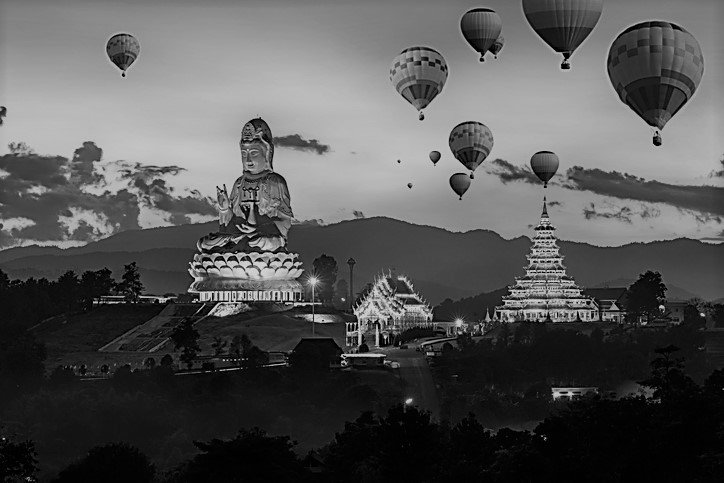It will be business as usual this month for Thailand’s lucrative tourism industry as the country gears up for the lavish funeral of its revered King Bhumibol Adulyadej, the tourism agency said on Monday.
Tourism accounts for about 10 percent of Thailand’s GDP and has been one of the few bright spots for Southeast Asia’s second-largest economy, which has struggled since a 2014 coup by the military.
One of the world’s most popular travel destinations has observed a year-long period of mourning after the death in October last year of King Bhumibol, who ruled for seven decades, and will be cremated on Oct. 26 in a ceremony lasting five days.
“Tourism activities will continue as normal around the country, even though Thai people will be in mourning,” Tanes Petsuwan, a deputy governor of the Tourism Authority of Thailand, told Reuters.
“There are no restrictions on tourists at all and they can still enjoy ‘Amazing Thailand’ while they are here,” he said, referring to a tagline trumpeted in tourism advertisements.
However, Bangkok’s Grand Palace and the Temple of the Emerald Buddha, two key landmarks in the capital, will be closed for most of the month to host the cremation.
In a travel advisory last month, the tourism agency asked tourists to behave appropriately and respect Thai sensitivities during what promises to be an emotionally-charged time for many.
“We would like to request that the solemnity of the royal cremation is observed, and visitors should refrain from any inappropriate or disrespectful behavior,” it said.
While not required to wear black, tourists should stick to “respectful clothing”, it added.
With its beaches, Buddhist temples and infamous night life, Thailand remains a magnet for travelers despite weathering more than a decade of unrest, including two coups, deadly floods in 2011 and a wave of bombs in tourist towns last year.
It expects to welcome a record 32.4 million visitors this year.
King Bhumibol was succeeded by King Maha Vajiralongkorn, who ascended the throne in December last year.
King Vajiralongkorn has since overseen several shake-ups of palace staff and moved some agencies under his direct control, including the Crown Property Bureau, which manages most of the royal family’s wealth






